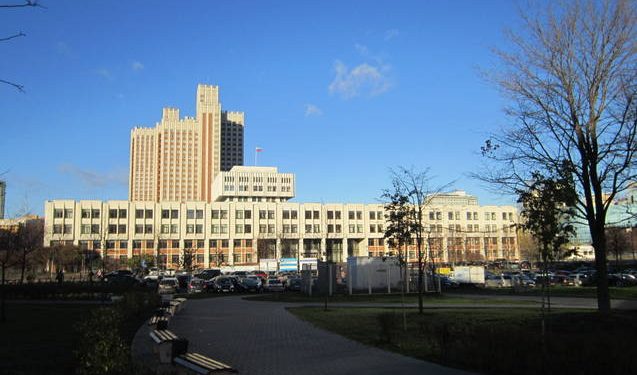Spending by international students in Russia reached $1.4bn in 2015, following a decade of growth that saw foreign enrolments almost triple to over 280,000, new research has shown. The study from the country’s largest state-funded institution of higher professional education predicts this figure could increase almost fourfold on the back of a continuing boom in enrolments to 2030.
News and business analysis for Professionals in International Education
Have some pie!
Russia: international student spending hits $1.4bn
 The report was published by RANEPA, Russia's largest state-funded institution of higher professional education. Photo: Wikicommons/WL959.
The report was published by RANEPA, Russia's largest state-funded institution of higher professional education. Photo: Wikicommons/WL959. International student spending on fees and living expenses has multiplied from $356.2m to $1.4bn (73.1 roubles) over the last decade, according to research from the Russian Presidential Academy of National Economy and Public Administration.
Over that period, the number of full time international students enrolled at Russian universities grew by an average of 9% a year, up from 82,250 in 2005 to 183,100 in 2015.
When foreign extramural enrolments – short term study and exchanges – are added, the total number of foreign students in Russian higher education courses has nearly tripled in 10 years from 109,286 to 282,900.
A quarter of foreign students come from Kazakhstan, Russia’s largest student source market. Belarus, Ukraine, China and Uzbekistan make up the top five markets.
If the growth rates seen over the last decade continue, Gulnara Krasnova, leading researcher at the university’s Institute of Applied Economic Research predicts full time international students will reach 666,911 in 2030, and extramural enrolments will more than double from 99,856 to 239,310.
And based on these figures, Krasnova has calculated that revenue from international student spending on living and fees could once again nearly quadruple in the next 15 years.
Living expenses are calculated according to a study carried out by the Russian government in 2015, which estimated students’ average monthly living expenses at $4,150, assuming that foreign students remain in the country for ten months (amounting to two semesters).
The study calculates that total household expenses of foreign students will reach $5.3bn by 2030
The largest expenses were on food and accommodation, followed by transport and academic supplies such as textbooks.
Adding together these expenses and accounting for inflation, the study calculates that total household expenses of foreign students will reach $5.3bn by 2030, and that fees will reach $1.1bn.
Revenue from international students could therefore hit $6.4bn by 2030, according to the forecasting.
However, Krasnova noted that student spending does not currently account for a “significant source of income” for Russia.
In contrast, spending by international students in Canada reached CAN$11.4bn (US$8.6bn) in 2014, according to a recent government report, while Australia’s international education industry was valued at A$20.3bn (US$15bn) in 2016.
“The educational sector has not been considered as one of the export items of the budget,” Krasnova told The PIE News.
“The reason is that involvement of international students to Russian universities is mostly considered from the point of ‘soft power’.”
Nevertheless, governmental support for the internationalisation of Russian universities has contributed to climbing student numbers and therefore revenue, she said. This includes funding injections for national research, the establishment of federal universities and for the development of new programmes, all of which have attracted international talent.
Initiatives to boost foreign student numbers include the government’s flagship Project 5-100, which aims to strengthen research and international engagement at selected federal institutions. Last year the project reported that international student numbers at participating universities had doubled in three years.
Still looking? Find by category:


